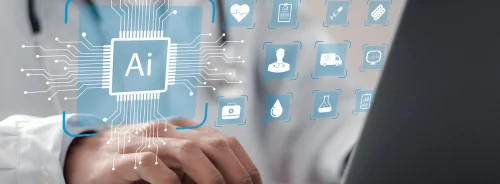HealthManagement, Volume 9 - Issue 2, 2009
Interviewee:
Prof. Gustav Von Schulthess
Director
Nuclear Medicine Clinic
University Hospital Zurich
Zurich, Switzerland
A Former Student at Harvard andMIT, You Eventually Settled onNuclear Medicine. Why was This?
I initially had no clear intention to go into imaging. I was attracted by the integration of medicine and physics in the Harvard-MIT division of Health Sciences and Technology (HST). During medical school I was drawn towards haematology and intensive care medicine. My residency in internal medicine quickly showed that much of what I had learned in physics I couldn’t use, so I entered nuclear medicine, then focusing on kinetic labelling experiments with blood cells. This got me hooked on imaging.
I was an early player in the MR field, starting a fellowship in San Francisco in 1984 and building the MR centre in Zurich. My ‘thing’ was always combining morphology and function - they complement each other. I have gone further in this field than I ever dreamed. This is documented with the first worldwide clinical PET-CT and with being one of the first two users of a solidstate based cardiac SPECT camera (five times faster than conventional techniques) integrated with CT.
What Distinguishes You Most from Other Radiologists and Scientists?
What may distinguish me from many of my colleagues is that, with my physics background I have reasonable ease in technology assessment. In this way I can prioritise which technology to invest in and where to hold back. The fact that I am an MD and PhD, an NM physician and a radiologist, an “old” European having lived more than seven years in the US, may also be relevant. I do not like to be put into a box, be cornered and labelled. That may mean that I am relatively free in my associations and not much constrained in thinking along given lines. Lastly, it is hard to achieve anything consistent without perseverance and hard work.
Did You Feel Prepared When You Learned You Would be Made Director of Nuclear Medicine in Zurich?
My great mentor, Prof. Walter Fuchs, prepared me for this role very well. I had been running the service as an acting chief for almost four years, and I made it a rule to identify what was needed beyond daily management and I presented that to Walter. Then he would add his own thoughts or questions in response. Thus, I learned independent decision-making. The critical moments came prior to assuming this position. Having a wife and three children, the pressure to achieve a definitive and relatively stable position was something I required!
What is Your Advice to Young Radiologists Hoping to Emulate Your Success?
Think outside the box, be thoughtful first and then consistent in what you want. Tolerate others and their other way of doing things. Remember, it is the result and not the path to the result, which counts at the end. Try to find a good mentor, who has the desired qualities. He/she will not need to make you small to feel big him/herself. Seek a mentor 10 or more years older than yourself.
As a Co-Founder of Timaq, What Lessons did You Learn From the Corporate World?
In a corporate environment, things have to be more structured and less chaotic than in academia. This may sometimes stifle creativity, but discipline is more readily learned in the corporate world and can be very helpful in academia. Furthermore, I learned that it is not easy to do many things simultaneously. A startup company is not something you can do as a sideline. You need excellent people in your company, because you cannot make five things work by yourself.
Is it a Difficult Task to Balance Your Workload?
I would always like to do more. At times, however, you need to be able to say enough is enough and to let go. Giving young people the opportunity to demonstrate their ability to decide independently may positively surprise you. For personal reasons, my children had to function relatively independently at an early age. If I could have, I would have provided much more guidance. But this may often be unnecessary - people internalise what you want much before you become aware of it – hence: “all you ever needed to learn, you learned in kindergarden…”
Finally, Our Cover Story in this Issue Concerns the Impact of the Recession – is Radiology at Risk?
To be blunt, people get sick more or less independent of the economic situation. Imaging will be required at a steady rate, independent of economy. The equipment manufacturers clearly suffer in such times, because investments are delayed, but when the economy picks up, they are the first to sell again. So for us as physicians, times like the current ones have a positive side. I certainly have not seen my numbers drop in the last months. Is that not a nice confirmation that my service is providing something needed and useful?





